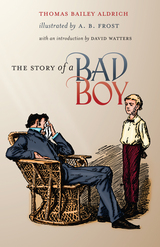3549 books about Nature and 4
start with Q
3549 books about Nature and 4
3549 books about Nature
4 start with Q start with Q
4 start with Q start with Q
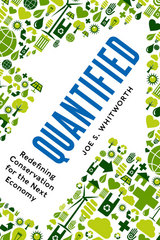
Quantified
Redefining Conservation for the Next Economy
Joe Whitworth
Island Press, 2015
Google, Apple, Amazon, Uber: companies like these have come to embody innovation, efficiency, and success. How often is the environmental movement characterized in the same terms? Sadly, conservation is frequently seen as a losing battle, waged by well-meaning, but ultimately ineffective idealists. Joe Whitworth argues it doesn’t have to be this way. In fact, it can’t be this way if we are to maintain our economy, let alone our health or the planet’s.
In Quantified, Whitworth draws lessons from the world’s most tech-savvy, high-impact organizations to show how we can make real gains for the environment. The principles of his approach, dubbed quantified conservation, will be familiar to any thriving entrepreneur: situational awareness, bold outcomes, innovation and technology, data and analytics, and gain-focused investment. This no-nonsense strategy builds on the inspirational environmental work begun in the 1970s, while recognizing that the next economy will demand new solutions.
As President of The Freshwater Trust, Whitworth has put quantified conservation into practice, pioneering the model of a “do-tank” that is dramatically changing how rivers can get restored across the United States. The stories in Quantified highlight the most precious of resources—water—but they apply to any environmental effort. Whether in the realm of policy, agriculture, business, or philanthropy, Whitworth is charting a new course for conservation.
In Quantified, Whitworth draws lessons from the world’s most tech-savvy, high-impact organizations to show how we can make real gains for the environment. The principles of his approach, dubbed quantified conservation, will be familiar to any thriving entrepreneur: situational awareness, bold outcomes, innovation and technology, data and analytics, and gain-focused investment. This no-nonsense strategy builds on the inspirational environmental work begun in the 1970s, while recognizing that the next economy will demand new solutions.
As President of The Freshwater Trust, Whitworth has put quantified conservation into practice, pioneering the model of a “do-tank” that is dramatically changing how rivers can get restored across the United States. The stories in Quantified highlight the most precious of resources—water—but they apply to any environmental effort. Whether in the realm of policy, agriculture, business, or philanthropy, Whitworth is charting a new course for conservation.
[more]
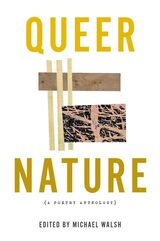
Queer Nature
A Poetry Anthology
Edited by Michael Walsh
Autumn House Press, 2022
An anthology of queer nature poetry spanning three centuries.
This anthology amplifies and centers LGBTQIA+ voices and perspectives in a collection of contemporary nature poetry. Showcasing over two hundred queer writers from the nineteenth to the twenty-first century, Queer Nature offers a new context for and expands upon the canon of nature poetry while also offering new lenses through which to view queerness and the natural world.
In the introduction, editor Michael Walsh writes that the anthology is “concerned with poems that speak to and about nature as the term is applied in everyday language to queer and trans bodies and identities . . . Queer Nature remains interested in elements, flora, fauna, habitats, homes, and natural forces—literary aspects of the work that allow queer and trans people to speak within their specific cultural and literary histories of the abnormal, the animal, the elemental, and the unnatural.” The anthology features poets including Elizabeth Bishop, Richard Blanco, Kay Ryan, Jericho Brown, Allen Ginsberg, Natalie Diaz, and June Jordan, as well as emerging voices such as Jari Bradley, Alicia Mountain, Eric Tran, and Jim Whiteside.
This anthology amplifies and centers LGBTQIA+ voices and perspectives in a collection of contemporary nature poetry. Showcasing over two hundred queer writers from the nineteenth to the twenty-first century, Queer Nature offers a new context for and expands upon the canon of nature poetry while also offering new lenses through which to view queerness and the natural world.
In the introduction, editor Michael Walsh writes that the anthology is “concerned with poems that speak to and about nature as the term is applied in everyday language to queer and trans bodies and identities . . . Queer Nature remains interested in elements, flora, fauna, habitats, homes, and natural forces—literary aspects of the work that allow queer and trans people to speak within their specific cultural and literary histories of the abnormal, the animal, the elemental, and the unnatural.” The anthology features poets including Elizabeth Bishop, Richard Blanco, Kay Ryan, Jericho Brown, Allen Ginsberg, Natalie Diaz, and June Jordan, as well as emerging voices such as Jari Bradley, Alicia Mountain, Eric Tran, and Jim Whiteside.
[more]
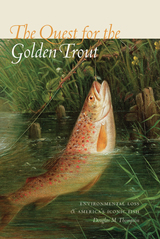
The Quest for the Golden Trout
Environmental Loss and America’s Iconic Fish
Douglas M. Thompson
University Press of New England, 2013
The angler’s dream of fishing pristine waters in unspoiled country for sleek, healthy trout has turned fishing into a form of theater. It is a manufactured experience—much to the detriment of our rivers and streams. Americans’ love of trout has reached a level of fervor that borders on the religious. Federal and state agencies, as well as nongovernmental lobbying groups, invest billions of dollars on river restoration projects and fish-stocking programs. Yet, their decisions are based on faulty logic and risk destroying species they are tasked with protecting. River ecosystems are modified with engineered structures to improve fishing, native species that compete with trout are eradicated, and nonnative invasive game fish are indiscriminately introduced, genetically modified, and selectively bred to produce more appealing targets for anglers—including the freakishly contrived “golden trout.” The Quest for the Golden Trout is about looking at our nation’s rivers with a more critical eye—and asking more questions about both historic and current practices in fisheries management.
[more]
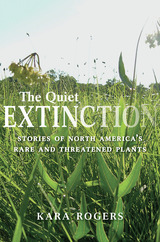
The Quiet Extinction
Stories of North America’s Rare and Threatened Plants
Kara Rogers
University of Arizona Press, 2015
In the United States and Canada, thousands of species of native plants are edging toward the brink of extinction, and they are doing so quietly. They are slipping away inconspicuously from settings as diverse as backyards and protected lands. The factors that have contributed to their disappearance are varied and complex, but the consequences of their loss are immeasurable.
With extensive histories of a cast of familiar and rare North American plants, The Quiet Extinction explores the reasons why many of our native plants are disappearing. Curious minds will find a desperate struggle for existence waged by these plants and discover the great environmental impacts that could come if the struggle continues.
Kara Rogers relates the stories of some of North America’s most inspiring rare and threatened plants. She explores, as never before, their significance to the continent’s natural heritage, capturing the excitement of their discovery, the tragedy that has come to define their existence, and the remarkable efforts underway to save them. Accompanied by illustrations created by the author and packed with absorbing detail, The Quiet Extinction offers a compelling and refreshing perspective of rare and threatened plants and their relationship with the land and its people.
With extensive histories of a cast of familiar and rare North American plants, The Quiet Extinction explores the reasons why many of our native plants are disappearing. Curious minds will find a desperate struggle for existence waged by these plants and discover the great environmental impacts that could come if the struggle continues.
Kara Rogers relates the stories of some of North America’s most inspiring rare and threatened plants. She explores, as never before, their significance to the continent’s natural heritage, capturing the excitement of their discovery, the tragedy that has come to define their existence, and the remarkable efforts underway to save them. Accompanied by illustrations created by the author and packed with absorbing detail, The Quiet Extinction offers a compelling and refreshing perspective of rare and threatened plants and their relationship with the land and its people.
[more]
READERS
Browse our collection.
PUBLISHERS
See BiblioVault's publisher services.
STUDENT SERVICES
Files for college accessibility offices.
UChicago Accessibility Resources
home | accessibility | search | about | contact us
BiblioVault ® 2001 - 2024
The University of Chicago Press




